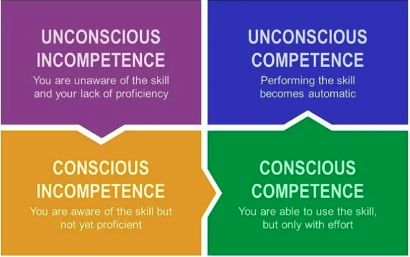|
How competent are you?
It’s no secret that many employers are looking for more qualified people.

“I can’t get people to show up for an interview.”
“I can’t get people to work.”
“I don’t have enough of the right kind of people.”
“I’ve got people, but they aren’t great, and I’m afraid to fire them.”
In small businesses, most employers don’t have a “training team” or a “training academy” where they send people away for weeks of team building and training before they allow them to interact with a customer. We throw new team members to the wolves in the first few hours of employment. It’s as if Starbucks hired a new barista and threw them into the drive-through at 6:45 am on a weekday with a line wrapping around the building and said, “OK – you made coffee at home. You watched one of us for a few hours. Good luck!”
Many of us are operating under the principle that it takes “21 days to make a habit,” If my new team member has been with me for three weeks, they should have it all figured out. Kirk Berhnhart of Act Dental has a 3-3-3 onboarding philosophy that outlines a better path forward.
As it turns out, habits take 59-70 days to become automatic. In short, team members who STICK can move through the four levels of competence. Both employers and employees are frustrated because they are stuck in “conscious incompetence” and don’t have the plan to get out of it.
Here’s an easy 5 step plan:
- Create a list of no more than ten critical tasks that are required for the position
- Ask the employee and employer to rate the square the employee is in for each critical task.
- Prioritize the critical tasks you want to improve on first and the timeline.
- Set aside dedicated time for training.
- Revisit the ratings every 60 days and repeat.
See number four? Set aside DEDICATED time for training. Doing what you’ve done in the past will not work in today’s hiring environment. Most of us don’t become proficient in a task while watching someone else do it. We cannot become proficient when the trainer and the trainee try to juggle multiple responsibilities simultaneously. Dedicated time can be something as easy as 10 minutes per day. Or, heaven forbid, we set aside time on a non-clinical day (Friday, even Saturday) for 4-hour CHUNKS where we can teach, learn and practice. Practices who can commit to this plan consistently won’t be stuck saying:”I can’t get people to show up for an interview.”
“I can’t get people to work.”
“I don’t have enough of the right kind of people.”
“I’ve got people, but they aren’t great, and I’m afraid to fire them.”
|
